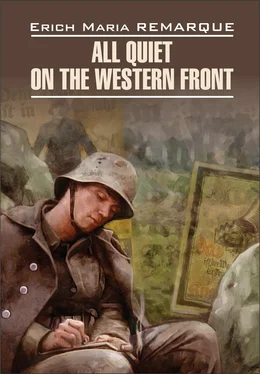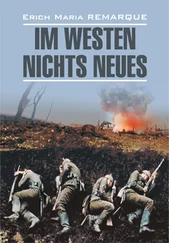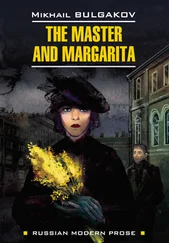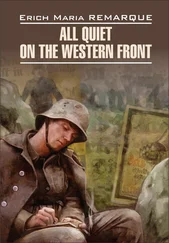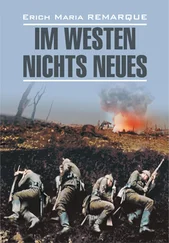Nowadays we would no longer have any real links with the way we used to be. It wasn’t the awareness of how beautiful it was that meant so much to us, or of how good the atmosphere was, but the feeling of community, the way we all felt a kinship with the objects and events of our existence. That’s what set us apart and made our parents’ world a little difficult for us to understand; because somehow we were always gently bound up with that world, submissive to it all, and the smallest thing led us onwards along the path of eternity. Perhaps it was just the privilege of our youth – we were not yet able to see any restrictions, and we could not admit to ourselves that things would ever come to an end; expectation was in our blood, and this meant that we were at one with our lives as the days went by.
Now we would wander around like strangers in those landscapes of our youth. We have been consumed in the fires of reality, we perceive differences only in the way tradesmen do, and we see necessities like butchers. We are free of care no longer – we are terrifyingly indifferent. We might be present in that world, but would we be alive in it?
We are like children who have been abandoned and we are as experienced as old men, we are coarse, unhappy and superficial – I think that we are lost.
My hands get cold and my flesh shivers; even though it is a warm night. Only the mist is chilly, that ghastly mist that creeps across the dead men in front of us and sucks out their last, concealed scraps of life. By tomorrow they will be green and pallid and their blood will be thickened and black.
The Verey lights are still shooting upwards and throwing their merciless glare over the stony landscape, which is full of craters and a shining coldness, like some dead moon. The blood beneath my skin brings fear and disquiet into my thoughts. They become weak, they tremble, they need warmth and life. They cannot survive without comfort and illusion, they become confused in the face of naked despair.
I hear mess-tins rattling, and at once I have a fierce desire for hot food, which will do me good and calm me down. With some difficulty I force myself to wait until I am relieved.
Then I go into the dugout and get hold of a mug of barley broth. The pearl barley has been cooked in fat and tastes good, and I eat it slowly. But I keep to myself, even though the others are in better spirits now that the shelling has died down.
The days roll by and every hour is incomprehensible and matter of fact at the same time. Attacks alternate with counter-attacks and slowly the dead pile up between the trenches in no man’s land. We can usually get out and fetch back any wounded men that aren’t too far away. Some have to lie there for a long time, though, and we listen to them dying.
We search for one of them for two whole days, in vain. He must be lying face downwards, and can’t turn over. It’s the only explanation for why we can’t find him; because only when someone is screaming with his mouth close to the ground does it make it hard to gauge the direction.
He’ll have one of the worst sort of wounds, one of those that are not so bad as to weaken the body quickly and let you just drift off in a half-numbed state, but not so light that you can bear the pain with any reasonable expectation of getting over it. Kat reckons that either his pelvis has been shattered, or he has been hit in the spine. He says that his chest can’t have been hit, or he wouldn’t have so much strength to scream, but if he had some other kind of wound you would be able to see him moving.
Gradually he gets hoarser. His voice sounds so weird that it could come from anywhere. Three times during the first night groups of our men go out there. But every time they think they have the right direction and are crawling towards him, the next time they hear his voice it is coming from somewhere else. We search in vain until it starts to get light. During the daytime we scan the area with field glasses; not a trace. By the second day the man is quieter, and you can tell that his throat and lips are parched.
Our company commander has promised priority leave and three extra days to anyone who finds him. That is a huge incentive, but even without it we would do all we could anyway; the shouting is so awful. Kat and Kropp even make another sortie during the afternoon. In the process Kropp gets an earlobe shot off. But it is no use, and they come back without him.
And on top of it all you can hear quite clearly what he is shouting. At first he just screamed for help all the time – then in the second night he must have become feverish, because he is talking to his wife and children, and we can pick out the name Efise. Today he is just crying. Towards evening the voice dies away to just a croak. But he groans softly all through the night. We can hear him so clearly because the wind is blowing towards our trench. In the morning, when we think he must have gone to his rest long since, we hear a gurgling rattle once again.
The days are hot and the dead lie unburied. We can’t fetch them all, and we don’t know where to put them. The shells bury them for us. Quite often their bellies swell up like balloons. They hiss, belch and move because of the gases which are rumbling about inside them.
The sky is blue and cloudless. In the evenings it becomes oppressive, and the heat rises out of the ground. When the wind is in our direction it brings the smell of blood, heavy, and with a repulsive sweetness, a waft of death breathing out of the shell holes, a smell that seems to be composed of a mixture of chloroform and decomposition, and which makes us feel faint, or makes us vomit.
The nights turn quiet, and the hunt for copper driving bands from shells, or for the silk parachutes from French rocket flares starts up. Nobody really knows why the driving bands are so eagerly sought after. The men who collect them simply declare that they are valuable. There are people who hump so many of these away with them that they are bent and staggering under their weight when we withdraw.
Haie at least gives a reason for collecting them: he wants to send them to his girlfriend as a substitute for garters. When they hear this, there is naturally a great outburst of merriment among the other lads from his part of the world; they slap their thighs – ‘That’s a good ’un, bloody hell, old Haie, he’s a sharp one and no mistake!’ Of all of them, Tjaden is the one who just can’t stop laughing; he’s got the biggest of the driving bands and is forever sticking his leg through it to show how much room there is to spare. ‘Christ, Haie, she must have a pair of thighs, thighs!’
And mentally he moves up a bit – ‘and a bum, too, she must have a bum like – like an elephant’s.’
He can’t get over it. ‘I wouldn’t mind a bit of slap and tickle with her, not half I wouldn’t —’
Haie beams to hear his girlfriend getting all this acclaim, and says in a self-satisfied and succinct manner, ‘Oh aye, she’s a big lass.’ The silk parachutes are of greater practical value. Three or four will make up a blouse, depending on bust size. Kropp and I use them for handkerchiefs. The others send them home. If their womenfolk could see the risks that the men sometimes take fetching these flimsy rags it would really give them a shock.
Kat catches Tjaden trying to hammer the driving band off a dud shell, calm as you please. With anyone else, the thing would have exploded, but Tjaden is lucky – he always is.
For the whole morning two butterflies have been playing around our trench. They are brimstones, and their yellow wings have orange spots on them. I wonder what could have brought them here? There are no plants or flowers for miles. They settle on the teeth of a skull. The birds are just as carefree as the butterflies, because they have long since got used to the war. Every morning larks rise between the two front-line trenches. A year ago we watched them nesting, and they even brought up a brood of young ones.
Читать дальше
Конец ознакомительного отрывка
Купить книгу
